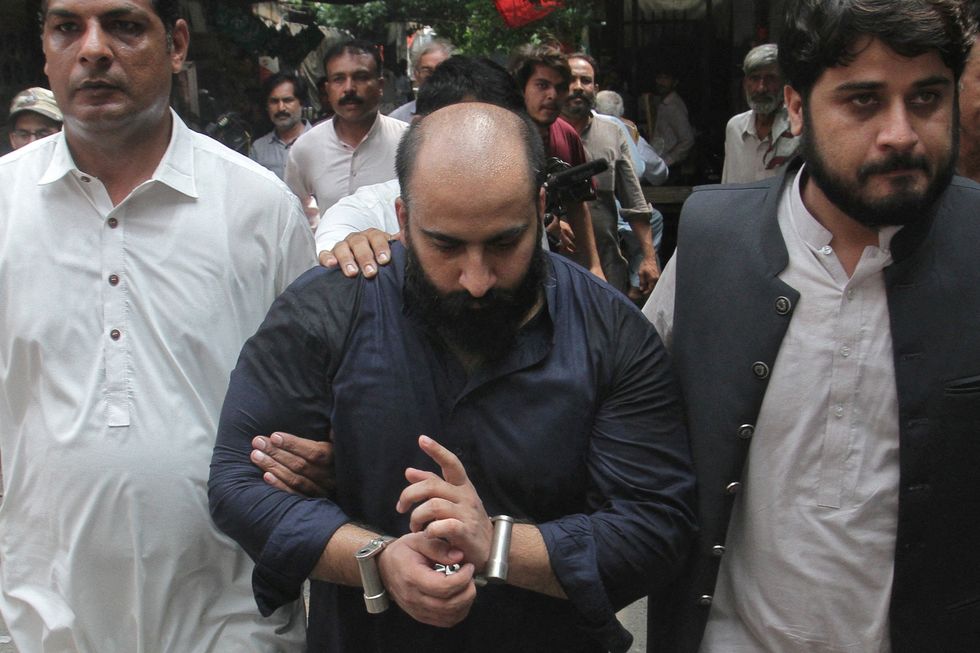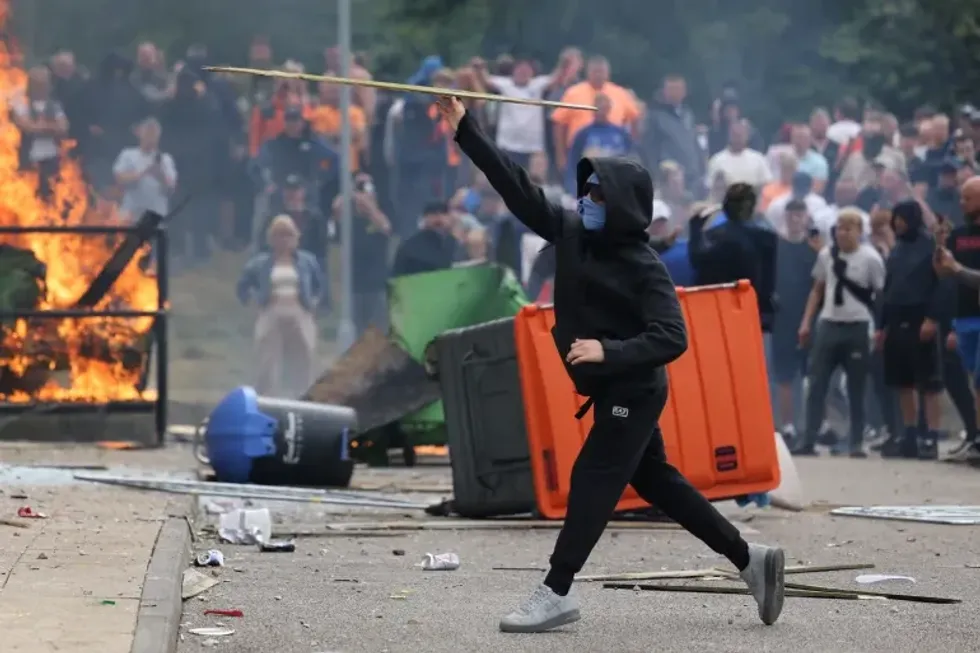Decoding the acquittal: The Pakistani man cleared in UK riots case
Exoneration raises questions over transnational nature of misinformation, absence of laws to hold publishers accountable
News Desk
The News Desk provides timely and factual coverage of national and international events, with an emphasis on accuracy and clarity.

Court told fake news shared by Farhan Asif was taken down from his website within hours
Advocates say no transparency on who sought Asif’s arrest; discuss absence of global legal regime to deal with such incidents
A Pakistani man arrested for spreading misinformation and ‘fueling’ last month’s riots in the UK was acquitted by a local court in Punjab earlier this week.
Anti-Muslim and anti-immigrant riots erupted across England after three young girls were stabbed to death, and five other children injured in the northern English town of Southport on July 29.
About three weeks later, Farhan Asif was taken into custody from his home in Lahore and handed over to the Federal Investigation Agency (FIA). He was accused of wrongly identifying the attacker as a Muslim and as an immigrant who arrived in the UK by boat a year ago.

The misinformation was published on his website ‘Channel3Now’ and shared thousands of times before it was deleted.
During the proceedings, the FIA informed the court that the investigation did not uncover any evidence that would implicate Asif.
The court was told that while Asif did share the fake news, he removed it from the website within six hours.
Speaking to Reuters TV, Asif's lawyer, Rana Rizwan Akhtar said his client was exonerated following the investigation. He said the investigative agency could not establish his involvement in any unlawful activity.
Nevertheless, Asif’s arrest and his subsequent exoneration has raised several questions.
The legalities
Advocate Supreme Court Asad Rahim also confirmed that PECA allows prosecution for acts committed outside Pakistan under Section 1(4). “But the question would be whether his actions affected persons or property in Pakistan,” he said.
“As to whether there should be a global legal regime, there is an urgent need to tackle disinformation in the context of the harm it has on international relations. But online and offline disinformation can threaten states' sovereignty, political independence, territorial integrity, and security of citizens,” Rahim added.
The advocate stated, “In terms of whether there should be consequences for sharing false information for profit, the easy answer would be, yes. We saw during COVID-19, for example, that social media and disinformation on social media had a severe negative impact on health outcomes.”
Director of the digital rights advocacy forum Bolo Bhi, Usama Khilji explained Asif was presumably arrested under the Prevention of Electronic Crimes Act (PECA) 2016. “Section 42 deals with international cooperation with a foreign agency,” he stated.
The Pakistani government has to cooperate if a foreign agency requests it to investigate a citizen for cybercrimes, and vice versa, Khilji informed.
However, he said that there was little transparency on whether the British government reached out to the Pakistani government and asked for Asif to be arrested.
“Whether it was under PECA or some other law… that is something that the British High Commission of Pakistan, British High Commission in Islamabad, and the Pakistani government should clarify.”
Asked if there should be a global legal regime given the transnational nature of disinformation? Khilji said that a global regime on disinformation was unnecessary because of the impact it can have on freedom of expression.
“However, the responsibility lies with social media platforms to regulate better in order to deal with disinformation. Because if you give the states the right to regulate disinformation, that can lead to a lot of abuse, especially in relation to political interests.”
“It's really criminalizing journalism in many ways," the rights advocate stated, clarifying that it was nonetheless important that journalistic outfits fact-check their information. "But this is not the correct way to deal with this. And should there be consequences for sharing false information for profit? Defamation laws and other laws around the world are starting to be decriminalized,” he added.
The intention was also key here, as per Khilji. “If we also see the intention behind sharing the information, and if it is not malicious, then criminal or civil suits do not satisfy legal requirements for such prosecution”.
Channel3Now
Investigations into the misinformation and subsequent riots revealed that the website, Channel3Now, that spread the fake news was based in Lahore, Pakistan.
The connection was reported by BBC which claimed that a young man from Lahore, a hockey player from Nova Scotia, and a resident of Texas, USA, were involved in inciting recent riots in the UK. According to the report, all of them were connected to Channel3Now.
The BBC identified several individuals associated with the website and confirmed their existence through conversations with their friends and associates. The website was reported to make money by publishing crime news on social media.
British television channel iTV News followed up with its investigation and tracked Asif down to his house.
In an interview with the channel, Asif denied being responsible for the violence that erupted following the false claims. "I don’t know how such a small article or a minor Twitter account could cause widespread confusion," he said.
After the interview, the iTV News later reported that the website had been shut down.
The riots
The Associated Press reported that about two dozen children were attending a summer vacation workshop when an attacker with a knife burst in. Alice Dasilva Aguiar, 9, Elsie Dot Stancombe, 7, and Bebe King, 6, died from their injuries. Ten other people were injured, among whom five girls and two adults were initially reported to be in critical condition.
A statement released by the Merseyside Police said the suspect was 17 years old and from Banks, Lancashire, about 8km (5 miles) from the site of the attack. Most notably, the police revealed that he was born in Cardiff, UK.
Days of unrest followed the attack as hundreds of far-right rioters indulged in violent protests, targeting Muslims and their properties in several towns and cities in the UK. The rioters also targeted mosques and smashed windows of hotels housing asylum-seekers from Africa and the Middle East, chanting "get them out".

Two weeks ago, British authorities arrested more than 1,000 people. Many have been swiftly jailed, with some receiving long sentences.










Comments
See what people are discussing